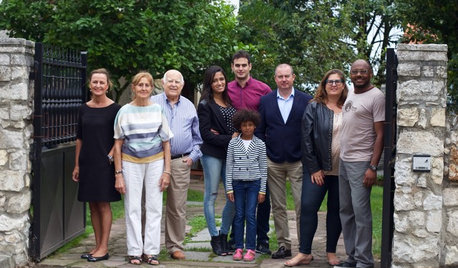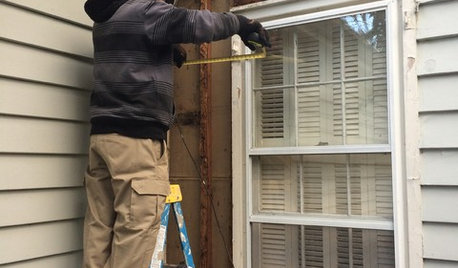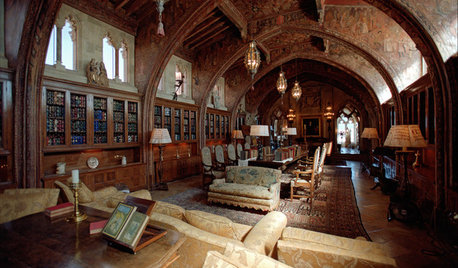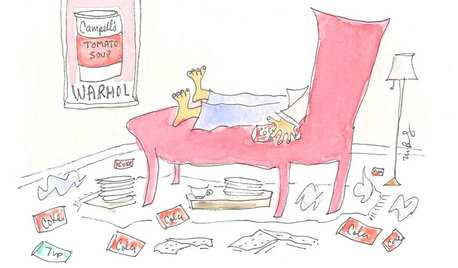Sort of on topic: The Three R's
friedag
10 years ago
Related Stories

HOUSEKEEPINGDishwasher vs. Hand-Washing Debate Finally Solved — Sort Of
Readers in 8 countries weigh in on whether an appliance saves time, water and sanity or if washing by hand is the only saving grace
Full Story
GREEN BUILDINGInsulation Basics: Heat, R-Value and the Building Envelope
Learn how heat moves through a home and the materials that can stop it, to make sure your insulation is as effective as you think
Full Story
LIFEWorld of Design: See How 7 Families Live in Multigenerational Homes
What happens when three or more generations live within shouting distance of one another? More hugging than shouting, actually
Full Story
WORKING WITH PROSBeyond the Warranty: Builders Respond to Those ‘Oh, No’ Calls
See how three building pros deal with real problems that come up after the warranty period ends
Full Story
GREAT DESIGNERSDesign Icons: Julia Morgan
Take the family to see this groundbreaking architect's Hearst Castle, or just virtually visit it and 2 more of her projects right here
Full Story
THE HARDWORKING HOMECES 2015: Inching Toward a Smarter Home
Companies are betting big on connected devices in 2015. Here’s a look at what’s to come
Full Story
You Said It: Hot-Button Issues Fired Up the Comments This Week
Dust, window coverings, contemporary designs and more are inspiring lively conversations on Houzz
Full Story
GARDENING GUIDESNew Ways to Think About All That Mulch in the Garden
Before you go making a mountain out of a mulch hill, learn the facts about what your plants and soil really want
Full Story
HOUSEKEEPINGPortrait of a Reformed Terrible Housekeeper
See how a man who once stashed dirty dishes under the couch is turning over a new leaf for a neater home
Full Story
BASEMENTSBasement of the Week: Apartment-Style Living (and Partying)
With games, a gym and high-end wine storage, this basement is a one-stop space for fun
Full Story



friedagOriginal Author
Kath
Related Discussions
Off Topic - But Hey ..... It's Winter.
Q
Please excuse the off in my topic, but could you please address
Q
Off topic -- Camellias!
Q
R22 vs R410 Coolant
Q
friedagOriginal Author
annpan
friedagOriginal Author
annpan
veer
woodnymph2_gw
annpan
janalyn
friedagOriginal Author
woodnymph2_gw
friedagOriginal Author
veer
carolyn_ky
annpan
friedagOriginal Author
donnamira
woodnymph2_gw
friedagOriginal Author
veer
annpan
friedagOriginal Author
janalyn
annpan
friedagOriginal Author
annpan
veer
janalyn
friedagOriginal Author
annpan
veer
woodnymph2_gw
friedagOriginal Author
friedagOriginal Author
friedagOriginal Author
janalyn
veer
carolyn_ky
friedagOriginal Author
janalyn
janalyn
friedagOriginal Author
Kath
veer
friedagOriginal Author
friedagOriginal Author
veer
carolyn_ky
annpan